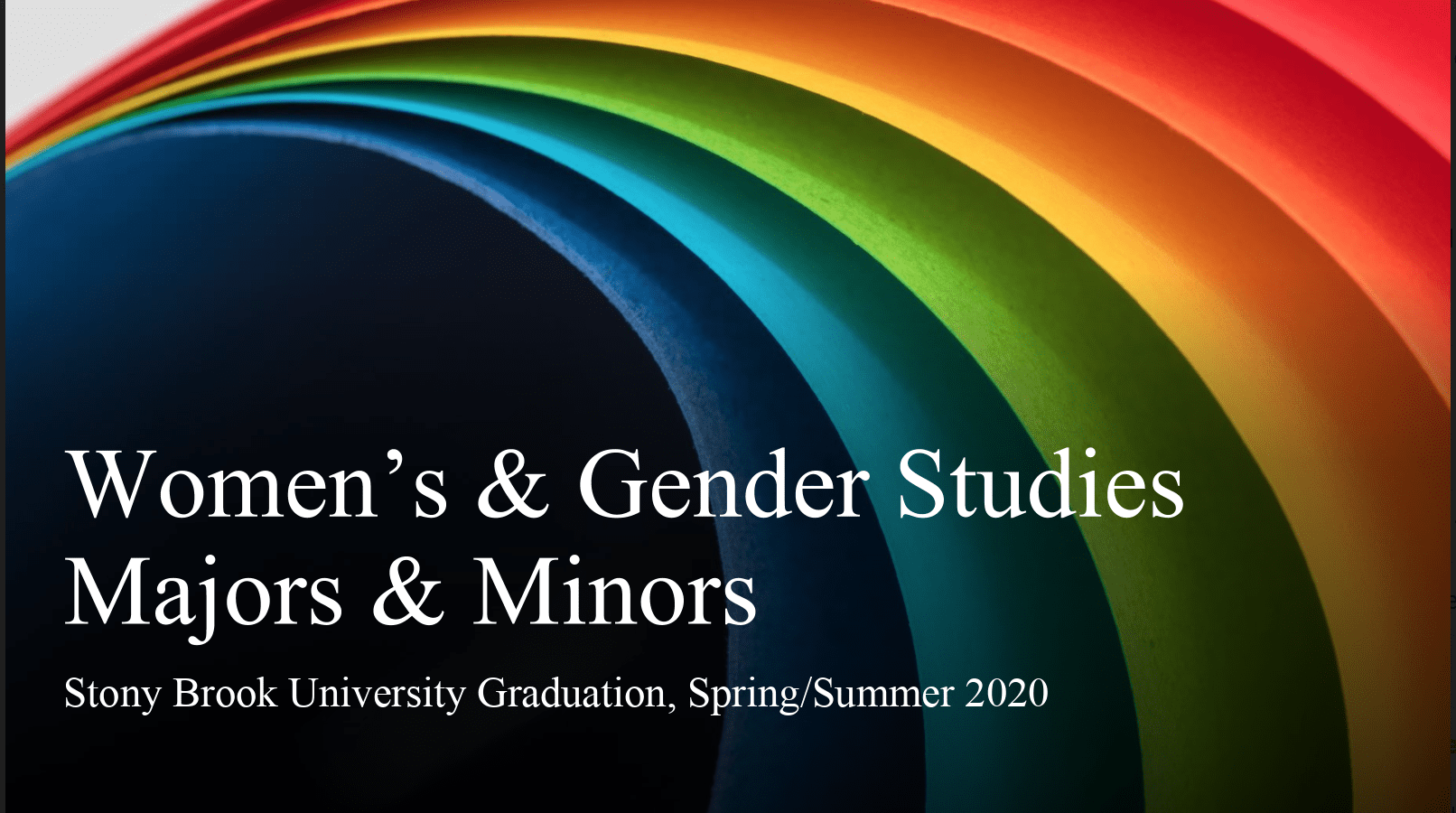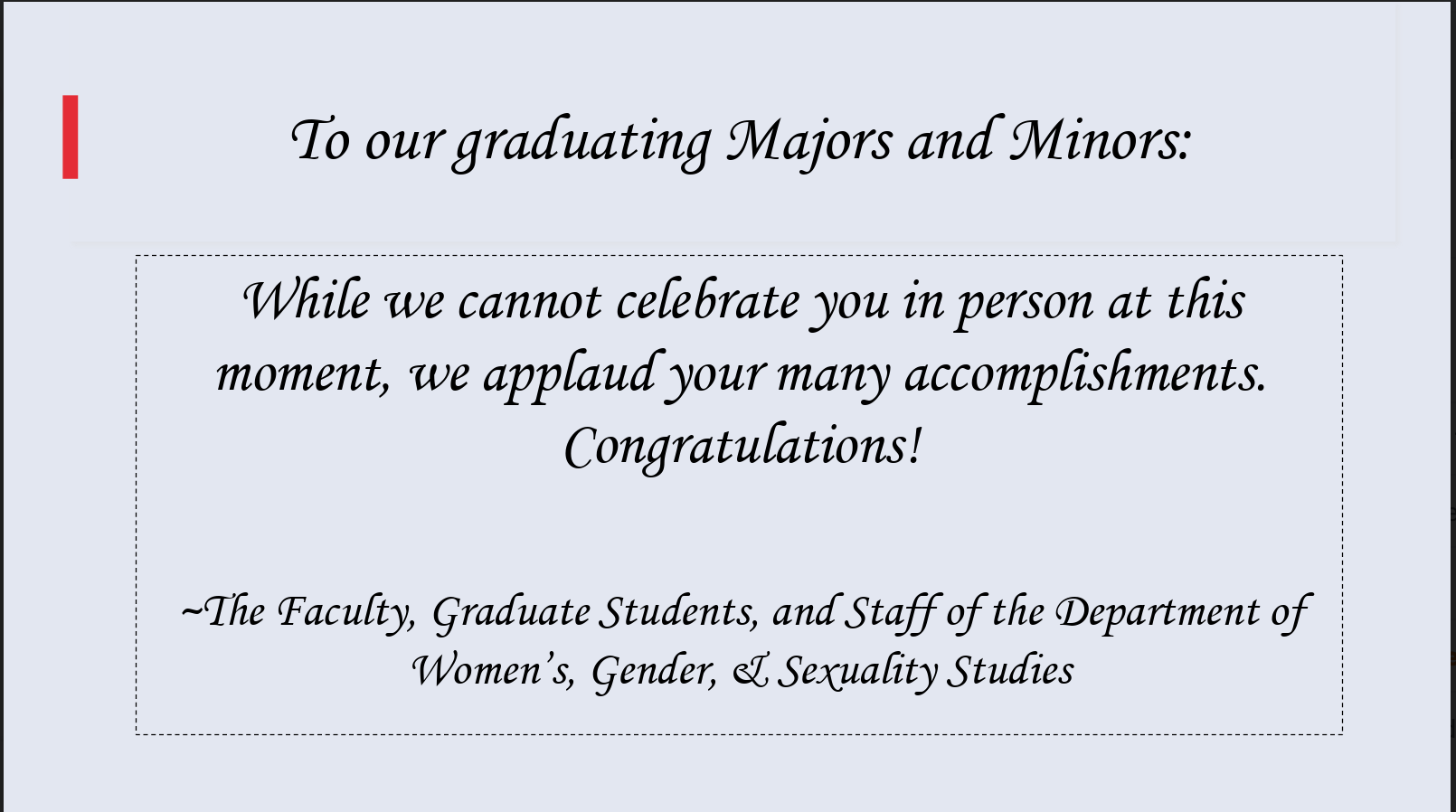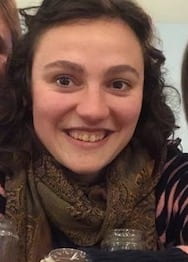This award is in honor of Terry Alexander, the mother of Courtney Alexander, a Women’s Studies major who graduated from Stony Brook in 2006. Terry Alexander worked in the New York City public schools, she was an active member of the Brownsville Community Baptist Church, and she was a community activist with the Bed Stuy Park Lions Club in Brooklyn. Terry was diagnosed with Multiple Sclerosis in 1982 and, from that point forward, she and her family were regular participants in the annual MS walk to raise awareness about the disease and money to further the research. Terry attended the WGSS graduation in May 2016 to watch her daughter graduate. Sadly, shortly thereafter, she became very ill from MS-related complications, and she died on December 7, 2006.
The WGSS Department is grateful for the Alexander family’s continued support, and we are honored to give the Terry Alexander Award each year to students planning to pursue a career in health care or health advocacy. Our hope is that this award will generate interest among our students in examining the complexities of caring for people with chronic illnesses while also providing us with the chance to acknowledge the importance of a parent’s love, encouragement, and commitment to education and community work. Terry Alexander is a shining example of all these things.
Photo on left is of Terry Alexander and on the right is Lucy Gordon.
Professor Liz Montegary presents the 2021 Terry Alexander Award in WGSS to Lucy Gordon:
It is my pleasure to announce the winner of this year’s Terry Alexander Award: Lucy Gordon. The department unanimously selected Lucy for this award, as her research interests, professional goals, and community activism reflect her investment in imagining new ways of organizing the world that would undo heteropatriarchal modes of oppression and improve health outcomes for racially marginalized communities. Over the past few years, Lucy has worked closely with the Center for Civic Justice at Stony Brook University. In addition to helping coordinate this past fall’s student voter registration drive, she organized community workshops on pressing matters of health and social justice, including an event on environmental racism and another on trans health care practices.
But Lucy is not only a skilled community organizer; she is also a dedicated feminist researcher. This year, she worked on two major research projects. Lucy joined a team of psychologists on campus to assist in a pilot project designed to increase access to mental health care for children. On top of making time for this ongoing collaborative project, she also completed a truly excellent WGSS Honors Senior Thesis entitled “Parenting in a Pandemic: Re-Imagining Childcare after COVID-19.” Drawing on quantitative survey data from and four in-depth interviews with parents from Long Island and New York City, Lucy explores the major challenges parents have faced over the past year and illuminates how the process of navigating these challenges has changed the way her informants think about the work of parenting and caregiving more broadly. She concludes her thesis by calling for a care work economy – a new way of organizing society where care work is not devalued as unskilled, feminized labor and relegated to privatized family units. Instead, she outlines strategies for building a world where caregiving of all kinds is actually valued and materially supported in the name of public health and economic justice.
Lucy is graduating from Stony Brook this month with BAs in Psychology and Women’s, Gender, and Sexuality Studies. As a feminist thinker committed to racial, gender, and disability liberation, she is considering careers in psychology, counseling, or social work and plans to apply to graduate school in the very near future. I have been consistently impressed by Lucy Gordon since I met her as a first-year four years ago, and I am 100% confident that she will continue impressing us in the years to come. Congrats, Lucy!




















